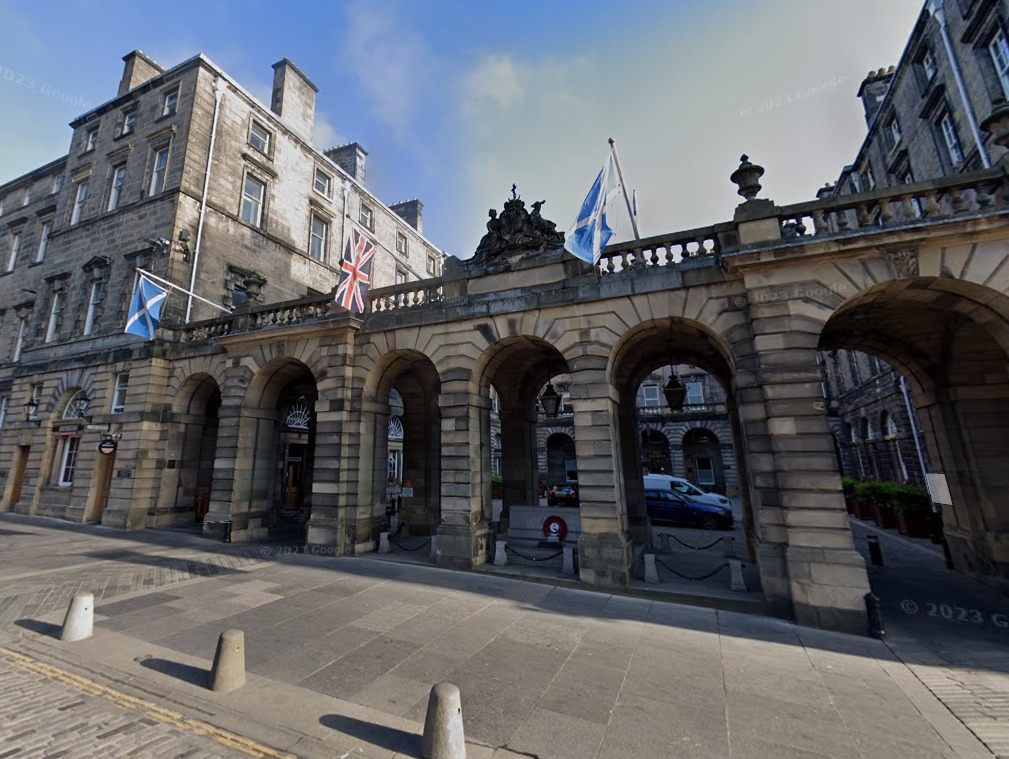A 24-room HMO has been ordered to provision extended kitchen facilities for its homeless tenants in order to get its licence back.
The House in Multiple Occupation licence for 2 Minto Street had lapsed, meaning the licence holder had to reapply.
The re-application was heard at Monday’s meeting of Edinburgh Council’s Licensing Sub-Committee.
According to council officer Andrew Mitchell, an inspection found that three bedrooms in the properties were found to be below the minimum width allowed by HMO regulations.
In addition, officers said there was an underprovision of cooking facilities in the house, with all flats having microwaves and refrigerators while sharing one small kitchen space.
The previous licence holder, Shahid Hafeez, said: “I’ve had a licence on this particular property since 2003, and through my own stupidity it lapsed for two weeks.
“That’s why it’s a re-apply, and why it’s being taken as a brand new licence.
“The three rooms in question, although they are a lot bigger than standard requirements are, the only reason they are in breach is 10 centimetres.
“The new guidelines state that a room should be 2.2 metres wide. These rooms are 2.11 metres wide, so it’s very marginal. They’re a lot bigger than the standard guidelines.”
He said the rooms were all close to 10 square metres, while the minimum requirement is 6.5 square metres.
Councillors also asked why plans submitted appeared to show all three rooms as being wider than 2.2 metres wide.
He said that this was due to fixed wardrobes being installed in the rooms, which reduced the remaining width of the rooms below that line.
Liberal Democrat councillor Neil Ross asked Mr Hafeez: “The suggestion of officers of a potential way forward for the kitchen facilities is to use a storeroom in addition to the current catering facilities.
“I wanted to ask you what the store-room is currently used for.”
Mr Hafeez replied: “The storeroom is literally a laundry room, which is just off the main kitchen area.
“We have cutlery and plates, so if we were to use that as extra kitchen space, storage space, microwaves, it could be done.
“That was the question raised to me [by a council employee], albeit we’ve been running and providing temporary accommodation for all these years and it’s never been raised before.”
Cllr Ross said that he would like to see the utility space transformed into a kitchen space, and that there were too many people sharing the existing kitchen facility.
He cited the high costs of takeaway as a concern for the homeless residents in the building.
Liberal Democrat councillor Jack Caldwell asked whether converting the space would impede on the ability for the residents to do their washing.
Mr Hafeez said the HMO would still be able to provide washing facilities for tenants, even if the space was converted.
He continued that the space was a laundry room, but that washing machines were located in each room.
Conservative councillor and convener of the Licensing Sub-Committee Joanna Mowat asked: “What facilities does everyone have in their room?”
Mr Hafeez replied: “They have washing machines, fridges, microwaves, wardrobes, chest of drawers, inside cabinets, bed, mattress, hanging space, and storage space.”
Cllr Mowat said: “I think I’m probably more relaxed about the size of the rooms than I am about the kitchen facilities. I think more cooking space and worktop needs to be put in.”
She then asked the Sub-Committee if it would be comfortable to require that Mr Hafeez add new worktop space, a double sink, an oven and a hob in the utility room, while approving the use of the rooms that did not meet the width standard.
Labour councillor Margaret Graham said: “I’m happy for [those] to be added as a condition, but I’m not happy with the three rooms.
“I will repeat again, [the standard] is there for a reason. People cannot feel the walls are moving into them.
“That’s why 2.2 metres was met, that’s the minimum standard that should be set. I feel like we have a duty to make sure that there is nobody in the city living in a room that is narrower than that.”
The committee approved Cllr Mowat’s proposals, while adding a requirement that the changes are enacted within three months.
By Joseph Sullivan Local Democracy Reporter
The Local Democracy Reporting Service (LDRS) is a public service news agency. It is funded by the BBC, provided by the local news sector (in Edinburgh that is Reach plc (the publisher behind Edinburgh Live and The Daily Record) and used by many qualifying partners. Local Democracy Reporters cover news about top-tier local authorities and other public service organisations.
Like this:
Like Loading…
Related
